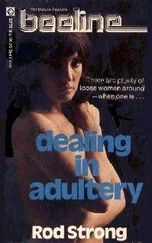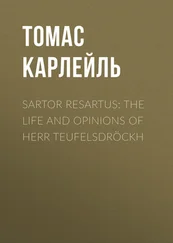Vladimir Nabokov - Strong opinions
Здесь есть возможность читать онлайн «Vladimir Nabokov - Strong opinions» весь текст электронной книги совершенно бесплатно (целиком полную версию без сокращений). В некоторых случаях можно слушать аудио, скачать через торрент в формате fb2 и присутствует краткое содержание. Город: New York, Год выпуска: 1990, Издательство: First Vintage International Edition, Жанр: Классическая проза, на английском языке. Описание произведения, (предисловие) а так же отзывы посетителей доступны на портале библиотеки ЛибКат.
- Название:Strong opinions
- Автор:
- Издательство:First Vintage International Edition
- Жанр:
- Год:1990
- Город:New York
- ISBN:нет данных
- Рейтинг книги:4 / 5. Голосов: 1
-
Избранное:Добавить в избранное
- Отзывы:
-
Ваша оценка:
- 80
- 1
- 2
- 3
- 4
- 5
Strong opinions: краткое содержание, описание и аннотация
Предлагаем к чтению аннотацию, описание, краткое содержание или предисловие (зависит от того, что написал сам автор книги «Strong opinions»). Если вы не нашли необходимую информацию о книге — напишите в комментариях, мы постараемся отыскать её.
Strong opinions — читать онлайн бесплатно полную книгу (весь текст) целиком
Ниже представлен текст книги, разбитый по страницам. Система сохранения места последней прочитанной страницы, позволяет с удобством читать онлайн бесплатно книгу «Strong opinions», без необходимости каждый раз заново искать на чём Вы остановились. Поставьте закладку, и сможете в любой момент перейти на страницу, на которой закончили чтение.
Интервал:
Закладка:
14 L. C. Higgins and N. D. Riley (1970)
ON HODASEV1CH
(Sovremennyya zapiski LIX, Paris 1939)
1 his poet, the greatest Russian poet ot our time, Pushkin's literary descendant in Tyutchev's line of succession, shall remain the pride of Russian poetry as long as its last memory lives. What makes his genius particularly striking is that it matured in the years of our literature's torpescence, when the Bolshevist era neatly divided poets into established optimists and demoted pessimists, endemic hearties and exiled hypochondriacs; a classification which, incidentally, leads to an instructive paradox: inside Russia the dictate acts from outside; outside Russia, it acts from within. The will of the government which implicitly demands a writer's affectionate attention toward a parachute, a farm tractor, a Red Army soldier, or the participant in some polar venture (i.e., toward this or that externality of the world) is naturally considerably more powerful than the injunction of exile, addressed to man's inner world. The latter precept is barely sensed by the weak and is scorned by the strong. In the nineteen twenties it induced nostalgic rhymes about St. Petersburg's rostral columns, and now, in the late thirties, it has evolved rhymed religious concerns, not always deep but always honest. Art, authentic art, whose object lies next to art's source (that is in lofty and desert places — and certainly not in the overpopulated vale of soulful effusions) has degenerated in our midst to the level, alas, of remedial lyricism; and although one understands that private despair cannot help seeking a public path for its easement, poetry has nothing to do with it: the bosom of the Church or that of the Seine is more competent in these matters. The public path, whatever it looks like, is, artistically, always a paltry one, precisely because of its being public. If, however, one finds hard to imagine a poet, in the confines of Russia, refusing to bend under the yoke (such as, for example, declining to translate a Caucasian poetaster's jingles) and behaving rashly enough to put the muse's liberty above his own, one should expect to find more easily in emigre Russia plucky loners who would not wish to unite and pool their poetical preoccupations in a sort ot communistery ot the spirit.
Even genius does not save one in Russia; in exile, one is saved by genius alone. No matter how difficult Hodasevich's last years were, no matter how sorely the banality of an emigre's lot irked him, no matter, too, how much the good old indifference of fellow mortals contributed to his mortal extinction, Hodasevich is safely enshrined in timeless Russia. Indeed, he himself was ready to admit, through the hiss of his bilious banter, through the «cold and murk» of the days predicted by Blok,* that he occupied a special position: the blissful solitude of a height others could not attain.
Here I have no intention of hitting bystanders with a swing of the thurible.**
*In verses written by Blok on the eve of our era:
If only you knew, oh children you,
The cold and murk of the coming days
**The metaphor is borrowed from a poem by Baratynski (1800 — 1844) accusing critics of lauding Lermontov (18141841) on the occasion of his death with the unique object of disparaging living poets. Incidentally, the dry little notice accorded to Baratynski in Pavlenkov's encyclopedia (St. Petersburg, 1913) ends with the marvelous misprint: «Complete Works, 1984».
A few poets of the emigr6 generation are still on their way up and, who knows, may reach the summits of art — if only they do not fritter away life in a second-rate Paris of their own which sails by with a slight list in the mirrors of taverns without mingling in any way with the French Paris, a motionless and impenetrable town. Hodasevich seemed to have sensed in his very fingers the branching influence of the poetry he created in exile and therefore felt a certain responsibility for its destiny, a destiny which irritated him more than it saddened him. The glum notes of cheap verse struck him more as a parody than as the echo of his collection Evropeyskaya Noch'(European Night), where hitterness, anger, angels, the gulfs of adjacent vowels — everything, in short, was genuine, unique, and quite unrelated to the current moods which clouded the verse of many of those who were more or less his disciples.
To speak of his masterstvo, Meisterschaft, «mastery», i.e. «technique», would be meaningless and even blasphemous in relation to poetry in general, and to his own verse in a sharply specific sense, since the notion of «mastery», which automatically supplies its own quotation marks, turns thereby into an appendage, a shadow demanding logical compensation in the guise of any positive quantity, and this easily brings us to that peculiar, soulful attitude toward poetry in result of which nothing remains of squashed art but a damp spot or tear stain. This is condemnable not because even the most purs sanglots require a perfect knowledge of prosody, language, verbal equipoise; and this is also absurd not because the poetaster intimating in slatternly verse that art dwindles to nought in the face of human suffering is indulging in coy deceit (comparable, say, to an undertaker's murmuring against human life because of its brevity); no: the split perceived by the brain between the thing and its fashioning is condemnable and absurd because it vitiates the essence of what actually (whatever you call the thing — «art», «poetry», «beauty») is inseparable from all its mysteriously indispensable properties. In other words, the perfect poem (at least three hundred examples of which can be found in Russian literature) is capable of being examined from all angles by the reader in search of its idea or only its sentiment, or only the picture, or only the sound (many things of that kind can be thought up, from «instrumentation» to «imaginization»), but all this amounts to a random selection of an entity's facet, none of which would deserve, really, a moment of our attention (nor could it of course induce in us any thrill except, maybe, obliquely, in making us recall some other «entity», somebody's voice, a room, a night), had not the poem possessed that resplendent independence in respect of which the term «masterly technique» rings as insultingly as its antonym «winning sincerity».
What I am saying here is far from being new; yet one is impelled to repeat it when speaking of Hodasevich. There exists not quite exact verse (whose very blurriness can have an appeal of its own like that of lovely nearsighted eyes) which makes a virtue of approximation by the poet's striving toward it with the same precision in selecting his words as would pass for «mastery» in more picturesque circumstances. Compared to those artful blurrings, the poetry of Hodasevich may strike the gentle reader as an over-polishing of form — I am deliberately using this unappetizing epithet. But the whole point is that his poetry — or indeed any authentic poetry — does not require any definition in terms of «form.''
I find it most odd myself that in this article, in this rapid inventory of thoughts prompted by Hodasevich's death, I seem to imply a vague non-recognition of his genius and engage in vague polemics with such phantoms as would question the enchantment and importance of his poetry. Fame, recognition — all that kind of thing is a phenomenon of rather dubious shape which death alone places in true perspective. I am ready to assume that there might have
I seen quite a few people who when reading with interest the weekly critique that Hodasevich wrote for Vozrozhdenie* (and it should be admitted that his reviews, with all their wit and allure, were not on the level of his poetry, for they lucked somehow its throb and magic) simply did not know that the reviewer was also a poet. I should not be surprised if this person or that finds Hodasevich's posthumous fame inexplicable at first blush. Furthermore, he published no poems lately — and readers are forgetful, and our literary critics are too excited and preoccupied by evanescent topical themes to have the time or occasion to remind the public of important matters. Be it as it may, all is finished now: the bequeathed gold shines on a shelf in full view of the future, whilst the gold-miner has left for the region from where, perhaps, a taint something reaches the cars ot good poets, penetrating our being with the beyond's fresh breath and conferring upon art that mystery which more than anything characterizes its essence.
Читать дальшеИнтервал:
Закладка:
Похожие книги на «Strong opinions»
Представляем Вашему вниманию похожие книги на «Strong opinions» списком для выбора. Мы отобрали схожую по названию и смыслу литературу в надежде предоставить читателям больше вариантов отыскать новые, интересные, ещё непрочитанные произведения.
Обсуждение, отзывы о книге «Strong opinions» и просто собственные мнения читателей. Оставьте ваши комментарии, напишите, что Вы думаете о произведении, его смысле или главных героях. Укажите что конкретно понравилось, а что нет, и почему Вы так считаете.










